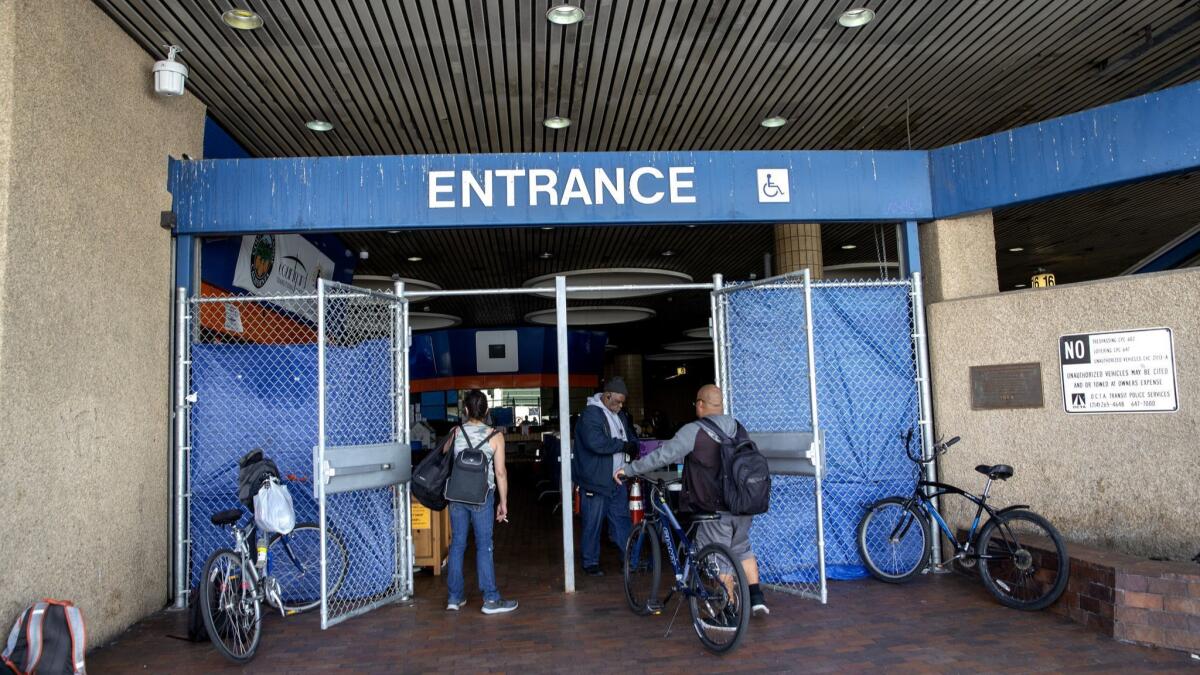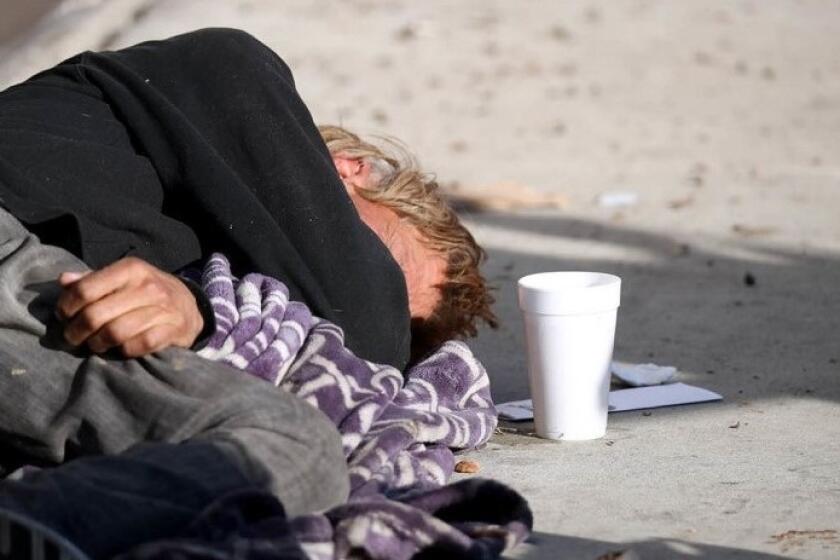A lawsuit alleges ‘unchecked groping’ and other sex abuse at O.C. homeless shelters

The American Civil Liberties Union of Southern California filed a lawsuit Thursday alleging that sex abuse, overcrowding and unhealthy conditions are rampant in three Orange County homeless shelters, saying conditions had not improved since it released a scathing 2019 report on the county’s emergency shelters.
“To spend nights in Orange County emergency shelters for people experiencing homelessness, women have had to endure relentless sexual harassment, including highly invasive body searches and voyeurism from staff members, as well as unchecked groping and lewd propositions,” the ACLU said in a statement announcing the lawsuit.
The lawsuit, filed in Orange County Superior Court on behalf of 11 shelter residents, alleges sexual abuse, rampant rodent and bedbug infestations, broken toilets and showers and extreme temperatures at the shelters.
It names Orange County and the city of Anaheim, which fund the shelters, and operators Illumination Foundation, Midnight Mission and Mercy House Living Centers & Protection America.
Illumination Foundation operates the Anaheim-funded shelter La Mesa. Mercy House operates Bridges at Kraemer Place in Anaheim and Midnight Mission operates the Courtyard, which has more than 400 beds in a former transit center near the Civic Center in Santa Ana.
The ACLU’s 2019 report found problems at Bridges and the Courtyard, as well as a women’s shelter called SAFEPlace.
“We haven’t seen a lot of progress since we released the report,” said Eve Garrow, a policy advocate for the ACLU who wrote the 2019 report. “The county has showed itself to be incapable at the moment of caring for this vulnerable population in a way that respects their rights and the dignity to which they are entitled.”
One of the shelters in the report, SAFEPlace, was not included in the lawsuit because it had made significant improvements, Garrow said.
In the meantime, Garrow said, the ACLU was beginning to hear complaints from La Mesa, a new shelter created in response to a federal lawsuit filed by the group Catholic Worker that alleged officials were arresting people for sleeping in public even though there were no shelter beds available for them.
“The fact that the county in response to the Catholic Worker’s lawsuit has opened so many more shelters added additional urgency to the issue,” Garrow said.
County Counsel Leon Page said he had not yet seen the lawsuit but that he expected the county would ask Judge David O. Carter to take jurisdiction over the case in U.S. District Court.
“I believe Judge Carter has an expansive view of the court’s jurisdiction over matters concerning homelessness,” Page said.
The ACLU was joined in the case by the law firm Kirkland & Ellis LLP.
The lawsuit alleges that conditions at the shelters violate California’s Fair Employment and Housing Act and provisions of the state Constitution that protect freedom of movement and ward against retaliation and invasions of privacy.
According to data from the coroner’s office, 146 homeless people died between April and August. During the same period last year, there were 82 deaths among the homeless.
The suit makes 14 specific allegations of unlawful conduct, including negligence; breach of warranty of habitability; unlawful expenditure of public funds; retaliation; battery; sexual battery; invasion of privacy; sex-based discrimination and harassment; and violation of equal protection and due process.
It seeks an order from the court prohibiting the alleged unlawful conduct, unspecified monetary damages and attorney fees.
“We’re looking for resources sufficient to meet the needs of this vulnerable population as well as increased oversight and accountability,” Garrow said.
More to Read
Sign up for Essential California
The most important California stories and recommendations in your inbox every morning.
You may occasionally receive promotional content from the Los Angeles Times.









